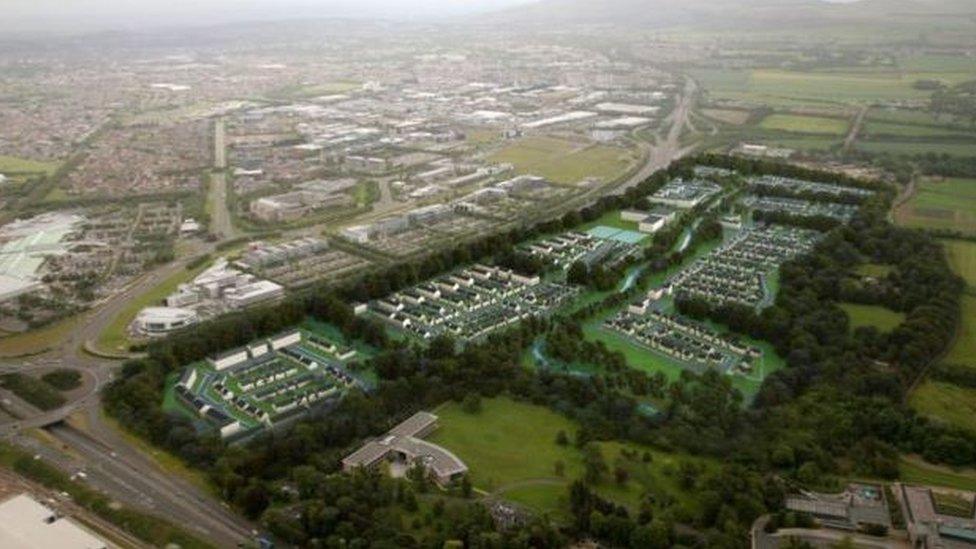First phase of Edinburgh's Garden District approved
- Published

The wider Garden Distirct project could involve £1bn of investment
The first phase of a plan to build thousands of homes on Edinburgh's greenbelt have been approved by Scottish Ministers.
Murray Estates, controlled by former Rangers owner Sir David Murray, has secured planning permission in principle for 1,350 homes.
The company said 330 of the properties would be affordable housing.
A primary school, shops and a 40-acre community park are also planned for the site.
The wider £1bn Garden District project could eventually see 6,000 homes built over 20 years.
The development has been proposed for land in west Edinburgh, and is bounded by the A8, A720 Edinburgh city bypass and Glasgow-Edinburgh railway. The Royal Bank of Scotland's headquarters is on the north-west side of the site.
Edinburgh councillors had previously voted in favour of the plans at a planning committee and then a meeting of the full council in 2016.
Scottish ministers called in the planning application for determination because of potential impacts, including on infrastructure.
Following scrutiny by a government-appointed planning official, ministers have agreed to grant permission in principle subject to conditions. These include Edinburgh councillors' approval of the project's masterplan.
'Support economic recovery'
In its decision, the Scottish government said the benefits of the proposed scheme outweighed the loss of green belt at the location.
The first phase could create up to 150 jobs initially and then sustain 137 jobs longer-term.
Sir David's son, also called David, who is managing director of Murray Capital, said he hoped the development would support economic recovery.
"This country's entire focus is, quite rightly, on tackling the immediate health and economic crisis caused by the Covid-19 pandemic," he said.
"However, as the health emergency subsides, the scale of the economic one will become clearer and attentions turns to how we address that."
- Published24 November 2016

- Published23 June 2010